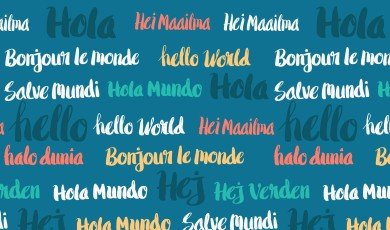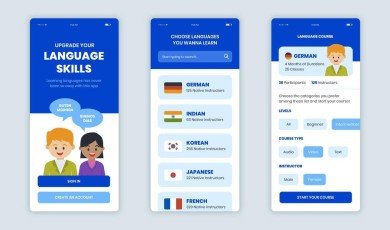
Translating in the Business World: A Guide to Effective Communication
In today's global economy, businesses operate across different languages and cultures. To succeed in this environment, effective communication is key. This is where translation comes in. Translating in the business world can help companies bridge the language gap, facilitate communication, and reach new markets. In this blog post, we'll explore the importance of translation in the business world and provide tips for effective communication.
Why is Translation Important in the Business World?
Translation is important in the business world for several reasons. First and foremost, it facilitates communication. In today's global economy, businesses need to communicate with customers, suppliers, and partners in different languages. Effective communication is key to building relationships, negotiating deals, and closing sales.
Translation can also help businesses reach new markets. By translating their website, marketing materials, and product information, companies can tap into new customer bases and expand their reach. This can lead to increased sales and revenue.
Finally, translation can help businesses build their brand and reputation. By demonstrating an understanding and respect for different languages and cultures, companies can position themselves as global players and gain the trust and loyalty of customers and partners around the world.
Tips for Effective Translation in the Business World
To ensure effective translation in the business world, here are some tips to keep in mind:
Understand Your Target Audience
Before you start translating, it's important to understand your target audience. Who are you communicating with? What language(s) do they speak? What cultural norms and values do they have? By understanding your audience, you can tailor your communication to their needs and preferences.
Understanding your target audience is an essential step in effective communication and translation in the business world. Here are some key factors to consider when understanding your target audience:
-
Language: Knowing the language(s) your audience speaks is crucial for effective communication. Make sure your translations are accurate and culturally appropriate.
-
Cultural Norms and Values: Different cultures have unique norms, values, and beliefs that influence communication. It's important to understand these cultural differences to ensure that your communication is respectful and effective.
-
Education and Background: The education and background of your target audience can impact their language proficiency, literacy level, and communication style. Consider these factors when creating your communication materials.
-
Demographics: Age, gender, location, and other demographic factors can impact how your audience receives your communication. Tailor your messaging and visuals to fit the preferences of your target audience.
-
Goals and Motivations: Understanding the goals and motivations of your target audience can help you tailor your communication to their needs and preferences. Consider what they want to achieve and how your product or service can help them.
By taking the time to understand your target audience, you can ensure that your communication is effective, respectful, and engaging. This will help you build relationships, connect with new markets, and achieve success in the global economy.
Use Professional Translation Services
When it comes to translating important business documents or materials, it's best to use professional translation services. This ensures accuracy, consistency, and quality in your translations. Look for a reputable translation agency or freelancer who specializes in your industry and target languages.
When it comes to translating important business documents or materials, using professional translation services is crucial for several reasons:
-
Accuracy: Professional translation services use experienced translators who are experts in the languages and subject matter they are translating. This ensures that your translations are accurate and culturally appropriate, which is essential for effective communication.
-
Consistency: Professional translation services use advanced tools and techniques to ensure consistency in your translations. This helps to maintain your brand voice and messaging across all of your communication materials.
-
Quality: Professional translation services are committed to delivering high-quality translations that meet your specific needs and requirements. This helps to ensure that your communication is clear, accurate, and effective.
-
Efficiency: Professional translation services have the resources and expertise to complete translations quickly and efficiently. This allows you to focus on other aspects of your business while your translations are being completed.
-
Legal Compliance: Professional translation services are familiar with legal requirements related to translation and can ensure that your translated documents meet these standards.
Overall, using professional translation services can save you time and money, while ensuring that your communication is accurate, consistent, and effective. Look for a reputable translation agency or freelancer who specializes in your industry and target languages to get started.
Avoid Machine Translation for Important Documents
While machine translation tools like Google Translate can be useful for quick translations, they should be avoided for important business documents or materials. Machine translations can be inaccurate, lack nuance, and may not capture the tone and context of your message. Stick with professional translation services for important documents.
Machine translation, while convenient and fast, is not always the best option for translating important business documents. Here are some reasons why:
-
Accuracy: Machine translation tools are not always accurate and can produce translations that are grammatically incorrect or do not convey the intended meaning. This can result in miscommunications, misunderstandings, and even legal issues.
-
Cultural Appropriateness: Machine translation tools may not take cultural differences into account, resulting in translations that are inappropriate or offensive. Professional translators can provide cultural insight and ensure that your translations are appropriate for your target audience.
-
Technical Jargon: Machine translation tools may not be able to handle technical or industry-specific jargon, resulting in translations that are incomplete or inaccurate. Professional translators with subject matter expertise can accurately translate technical terms and jargon.
-
Brand Voice: Machine translation tools cannot accurately convey your brand voice and messaging. Professional translators can maintain consistency and accuracy in your brand messaging and voice across all communication materials.
-
Legal Compliance: Some industries have legal requirements related to translation, and machine translation tools may not meet these requirements. Professional translators can ensure that your translated documents are legally compliant and meet all necessary requirements.
While machine translation may be useful for informal communication or quick translations, it is not always the best option for important business documents. It is always recommended to use professional translation services to ensure accuracy, cultural appropriateness, and legal compliance.
Localize Your Content
Localization is the process of adapting your content to the cultural and linguistic norms of your target audience. This involves more than just translation – it also includes adapting your visuals, messaging, and even your product offerings to fit the local market. Localization can help you connect with your audience on a deeper level and increase the effectiveness of your communication.
Proofread and Edit Your Translations
Before you finalize your translations, be sure to proofread and edit them carefully. This ensures accuracy, clarity, and consistency in your messaging. It's also a good idea to have a native speaker review your translations for cultural nuances and idiomatic expressions.
Conclusion
Translation is a crucial part of effective communication in the business world. By understanding your target audience, using professional translation services, avoiding machine translation for important documents, localizing your content, and proofreading and editing your translations, you can ensure that your communication is clear, accurate, and effective. With these tips in mind, you can successfully navigate the language and cultural barriers of the global economy and achieve success in your business endeavors.








